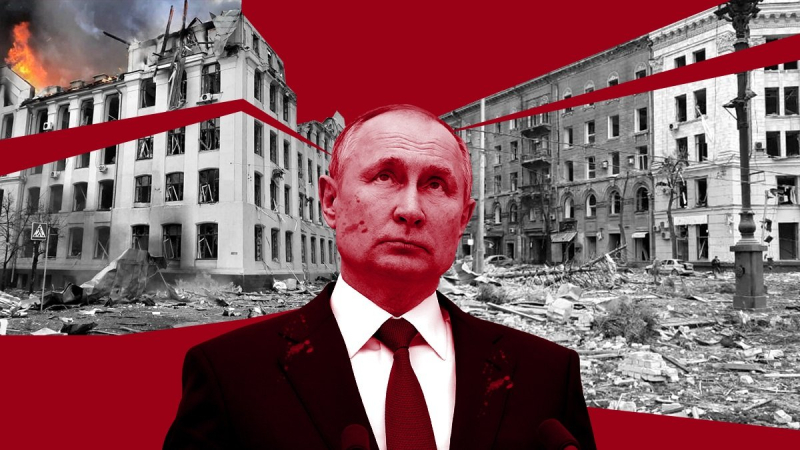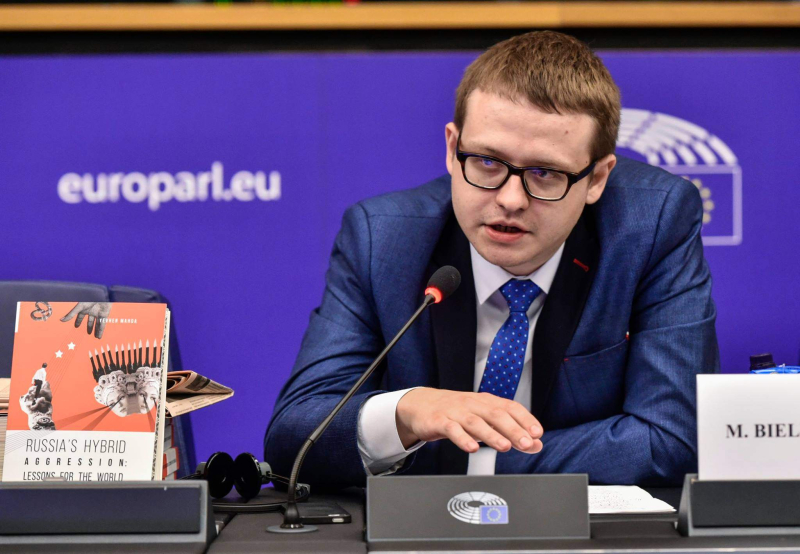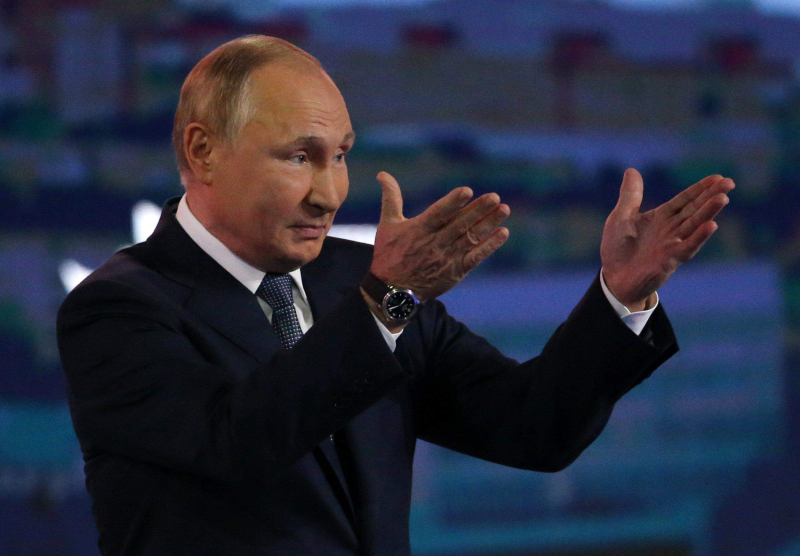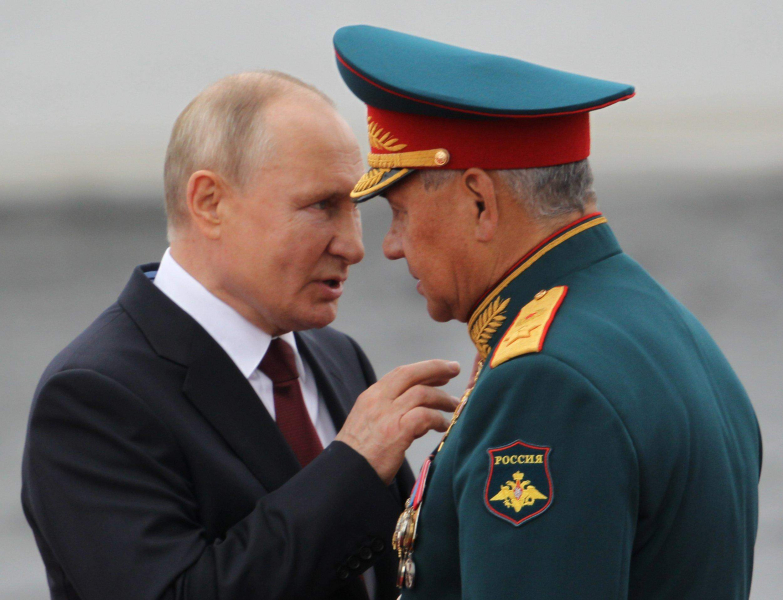
Russian occupiers are stuck in the Ukrainian defense, – an interview with a military expert/Channel 24 website collage
The large-scale war launched by Russia against our country at the end of February has been going on for three months now. As of the end of May, the South and East of Ukraine remain the hottest destinations.
What is happening today on the battlefields of an open war, what will military micromanagement give Vladimir Putin, has Russia lost the chance to attract the CSTO troops to its side, and what is the situation with military assistance from Western partners? military expert Nikolai Beleskov.
The situation at the front
Nikolay, tell us what is happening on the battlefields now?
In principle, the front of the Ukrainian-Russian war is now divided into two segments that are essentially different in combat operations.
- A segment where the situation is not distinguished by active actions either by ours or by the Russians. First of all, it is Kherson region, Zaporozhye region. Since the balance of power is the same, and neither we nor the Russians can carry out offensive operations for lack of the necessary forces.
Here, the front line practically does not move anymore not the first day. Moreover, the enemy, unfortunately, is already beginning to fortify the positions he occupies and prepare to defend the corresponding lines. Here the enemy is bogged down in our defenses. Therefore, the battle is on attrition.
- And the second is, of course, an arc that stretches from Izyum to Liman along the Seversky Donets to Severodonetsk, Popasna, Avdiivka. And further south to Maryinka and Ugledar. This is a zone of active combat operations, where the enemy is trying to break through our defenses, this is not possible. He has been trampling on these lines for more than a month. And if it advances, then this advance is very slow due to heavy fighting, accompanied by heavy losses.
And we, accordingly, are conducting an active defense operation. And yes, we actually ended the battle for Kharkov in our favor. That is, we can say that we won in the Slobozhansky direction. Even those territories to the north and northeast of Kharkov can already be regarded as marginal phenomena.
As a result, military operations will not be very active in this segment either. At the same time, it should be noted that artillery duels are constantly taking place on both sectors of the front.

Nikolay Beleskov spoke about the situation at the front/Photo from the speaker's archive
Let's detail the situation in the East.
The Russians are moving very slowly there. 1 – 2 kilometers a week – this is by no means the pace of the offensive. An offensive operation is when, after a few days, the front line breaks through and forces for the development of a breakthrough are introduced, which after 3-4 weeks carry out the tasks of encircling and destroying the forces of the defenders of the broken front.
The big battle for Donbass has been going on for a month already, and advancing 1-2 kilometers or capturing Popasna after it was completely destroyed are definitely not indicators of success. The aggressors on this sector of the front have only isolated tactical successes that do not grow into something more. As I said, they are actually bogged down in our defense.
Such an effective defense on our part is a consequence of the great self-sacrifice of our soldiers. Unfortunately, the enemy effectively uses artillery and aircraft against us, which leads to an increase in the number of wounded and dead defenders. It is difficult for the medical system to cope with this due to the overload of front-line medical institutions. And yet, we have created a coherent front line. In contrast to the first period of the war, when the defense was of a focal nature.
Now the front line is intact. As a result, it is very, very difficult to break through because of the high saturation of anti-tank weapons and because of the active nature of the defense itself. We do not wait until the enemy outplays us in the concentration of forces in one direction or another.
Instead, we fight proactively, striking as often as our rocket troops and artillery allow us to do. As the example with the destruction of pontoons showed, we calculate the steps of the Russians ahead of time and prepare for them. In sum, this gives a powerful effect.
What can you say about the Kherson direction?
In the context of the fact that now our main forces are in the East, we cannot afford such a luxury as the concentration of superior forces in the Kherson region and begin to win it back. Plus, again, defending and attacking are two big differences in terms of both the number of forces and their quality. Therefore, for now, I would not talk about the counteroffensive.
Now we are solving a slightly different range of tasks. The main question is with what forces the Russians will end the battle in the East. We will continue to monitor the situation. Will they have enough strength to hold the front line in the same Kherson region.
Perhaps they will retreat beyond the Dnieper themselves in the Kherson region. They will do this to level the front line, so that the front line becomes shorter. They simply do not have enough strength to hold such a long front line. Especially with heavy losses during the battle for the East.
Well, the question of our potential. It is one thing to conduct defensive operations, where anti-armor weapons (NLAW and Stinger – Channel 24), which are constantly provided to us, come to the fore. And quite another is the conduct of offensive operations, during which the leading role is assigned to heavy weapons. So far, too little of the latter is being sent to us in order to conduct large-scale offensive operations.
The key now is to deplete the offensive potential of the enemy in the East, and then we will proceed from what the balance of forces will be.
The decision of the Kremlin and the state of the Russian army
About what is evidence of Putin's desire to command Russian troops himself?
This is a good indicator that the enemy is doing poorly. Under normal conditions, politicians should not interfere at the tactical level at all, and at the operational level they should only understand what is happening in general terms. But do not tell how to fight.
That is, they can combine it with some political goals, strategic tasks, but not interfere with the organization and conduct of operations. Just make sure that this combination of political and military goals is present. The use of micromanagement here will not lead to anything good. On the contrary, only to even greater sacrifices on the Russian side.
Consequently, and the failure of all possible designs. When politicians poke their nose into the affairs of the military, this is not good. The military themselves know how best to fight. Politicians should keep their finger on the pulse of frontline events and nothing more.

What kind of fuss has risen in the Western military-analytical environment, associated with the reassessment of the combat potential of the Russian army?
We should probably start with the fact that there are no analysts who have a perfect track record. Everyone can be wrong. The initial reassessment of Russian forces had fatal consequences for us in terms of providing sufficient military support. An error has occurred and has been acknowledged. Now the assessment is treated more carefully.
At present, the assessment of the prospects of the Russian army looks quite correct. Western analysts agreed that they had made a mistake and would now be more restrained in their assessments of our enemy's capabilities. On the other hand, we still see that discussions continue. Much wider this time, covering politicians.
Disputes continue regarding the level of assistance, the prospects for resolving the situation. Western partners continue to debate among themselves whether Russia is ready to escalate with the use of weapons of mass destruction. Now we have already passed the stage when it was necessary to reproach Western experts for their miscalculations. At present, their underestimation no longer plays any role.
Everyone has seen what Ukraine is capable of, and they have also seen how Russia really fights. Nevertheless, no one canceled risks like nuclear escalation, and this, unfortunately, continues to hold back our partners in the issue of arms supply, which is the most critical for us.
How might the results of the re-evaluation affect the updated power rating of the enemy army on a global scale?
All of the ratings compiled were formed on the basis of quantitative indicators. This was precisely the reason for the reassessment of the Russian army not only by the Western analytical community, but also by the intelligence community. A classic of the genre, as they say. They primarily focused on quantitative indicators while not taking into account qualitative ones.
At present, the situation is developing in such a way that without mobilization, without the transition of the economy to a military footing, that part of the Russian army that is capable of conducting ground combat operations will soon stop its existence. The maximum that can remain is part of the troops, which will go over to the defense of the already captured parts of our territory at the moment.
Has Putin finally lost the chance to win over the military potential of the CSTO?< /strong>
Firstly, this potential is not so great, and secondly, after the failure of the original plan, I have doubts about the readiness of any of the Kremlin’s partners in this military-political bloc to join this adventure, which is increasingly developing into crisis and, as a result, strategic defeat
Even the Belarusian dictatorial regime, with all its favorable attitude towards Moscow, is only ready to cover its border, thus drawing off some small part of our forces.

According to the expert, Putin should not stick his nose into military issues/Photo by Getty Images
Will the Kremlin dictator take the risk of announcing full mobilization?
Objectively, the local political leadership faces a dilemma. If there is no additional large-scale influx of resources, then we will have to at least go on the defensive, while recognizing that even more modest goals in the Donbas cannot be achieved.
That is, the dilemma as such for the Russian elites is as follows: either start a large-scale infusion of additional resources, or come to terms with the existing state of affairs and go on the defensive. Hypothetically, they could create some new connections. It is clear that this would not have taken a week, or even two, relying on Soviet stocks of equipment. Yes, it is far from being all in a normal state, but at least part of it is in a more or less functional state.
However, this will not solve the problem of creating such a force that could afford to solve strategic problems. So it would only be a postponement of the inevitable failure. Therefore, soon, in my opinion, there will be a transition to the defensive and an attempt to play on the contradictions that exist in the West in terms of sanctions pressure and support for Ukraine. As a result, there will be an attempt once again to bet on freezing the conflict in the positions that the Russians occupy today.
Arms for Ukraine and the end of the war
Like we have what about Western weapons?
Politico writes that the White House is hesitant about whether we should hand over the MLRS. The issue of weapons will be decided taking into account whose opinion wins. Is it a bet that we need to support us until the moment of complete or partial destruction of the enemy military group that the Kremlin has set up against us today, and the liberation of territories, or the opinion that we need to immediately negotiate in order to avoid the risk of nuclear escalation.
Remembering the situation with the moments, why the Americans did not agree to act for us as those who would facilitate the transfer of these aircraft, it was expected that they would say so regarding the M270 or M142 systems. Without these systems, it will be much more difficult for us to fight. Even if they give us more M777 howitzers. It is these systems that are a marker of what Washington's vision is. This is the case when we understand Western reasoning and quite rightly disagree, but we can’t do anything about it.
We can go on arguing, which is what we actually do. We connect our adherents in the West. experts and politicians. However, this opinion of the American leadership will be quite difficult to change, because it is guided by strategic political calculations.
Are we able to withstand a long war?
< p> From the military point of view – yes. Here the question is more to the economy. We are again dependent on Western aid. Our economy is hit harder than Russia's. The relative losses on our side will be much greater. Plus, an interesting dynamic is emerging again, whereby who emerges victorious from this confrontation in the long run will depend on the level of assistance.
And now we see that the limits of this help. At least for today in terms of rocket and artillery weapons. And this is already affecting our ability to fight, especially to win back.
So two points will be decisive:
- The level of military and economic assistance to us.
- Level of pressure on Russia.

